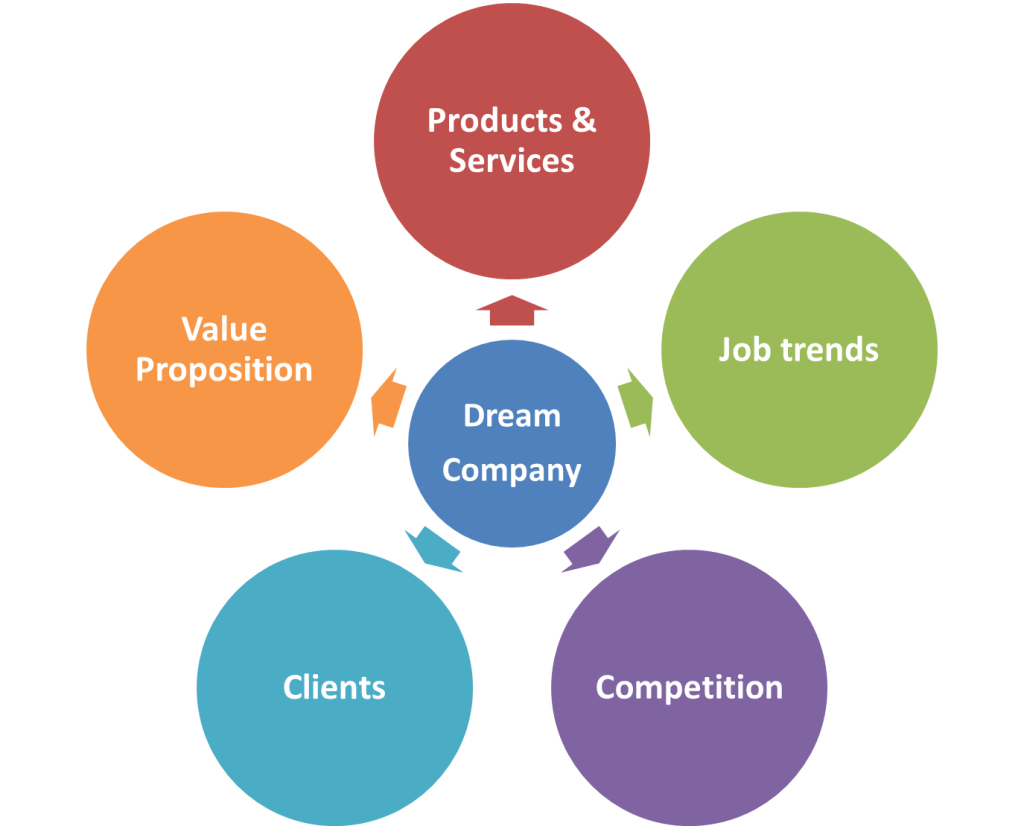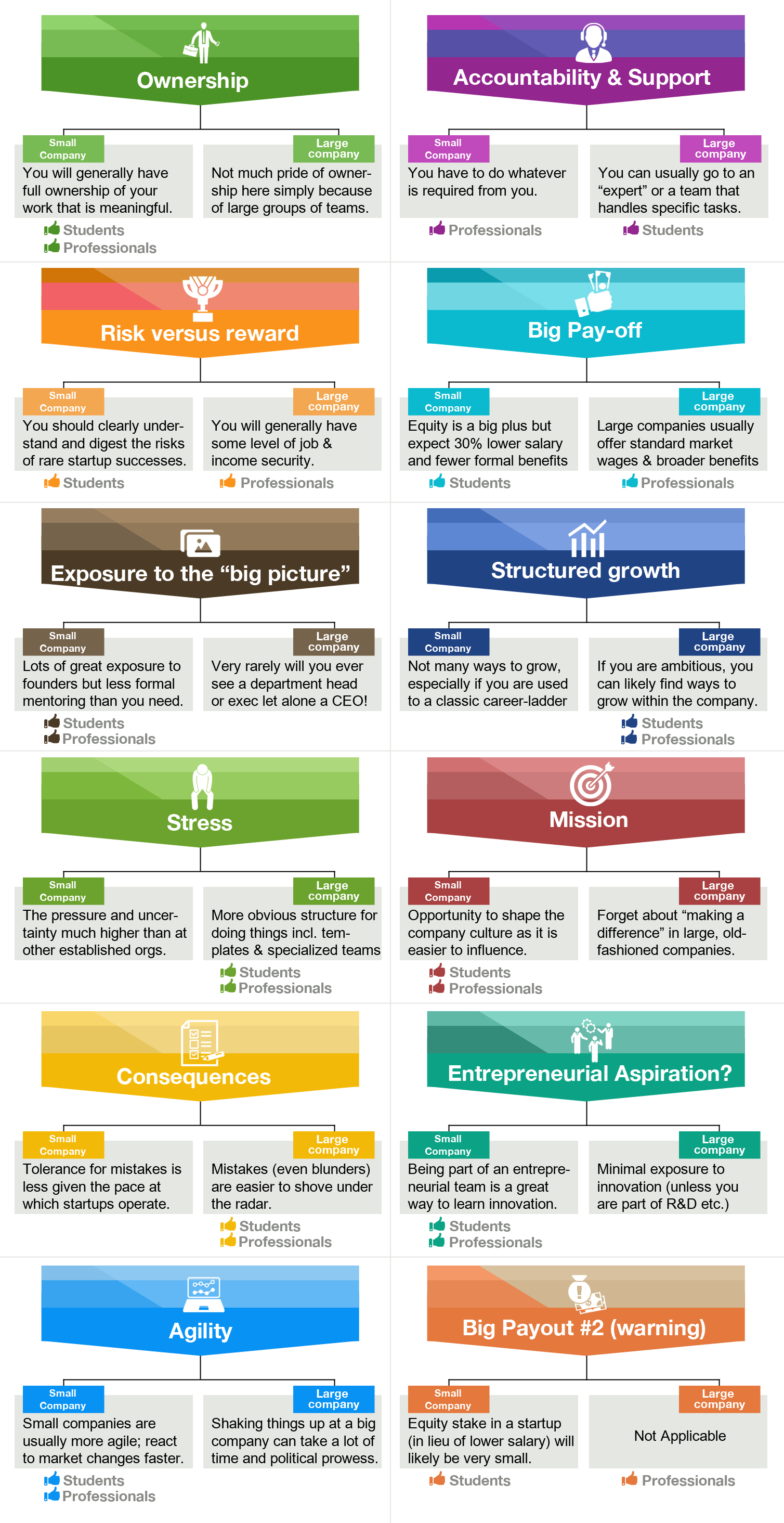As we started marketing our DreamPath tool, we very quickly arrived at the teaser/punchline. You see when we first talked to some of our potential clients who were interested in our concept, they would do the pitch for us as soon as we uttered the word “DreamPath”! Whenever a college career counselor (our first target segment) asked a class full of students what their dream companies were, an overwhelming majority of them tend to say “Intel or Nike“. Remember we are based out of Oregon and those are the two largest employers in the state. As you can tell clearly there is huge disconnect between dreams and reality here. The students are so enamored by the brand brainwashing these large companies do that they don’t research other companies who could offer them a better, fulfilling career. Subsequently only a small minority of these students get into their dream companies and the rest of them struggle to make a mark in their career for a while.
This story of course leads to the problem we are trying to solve with DreamPath. Our mission at DreamPath is to present students, and career-seekers at all levels with a much wider, compelling spectrum of opportunities in terms of matching employers. Our technology uses millions of data points and advanced algorithms to match each job seeker with their ideal employers. However, I will be the first to admit the underlying technology is far from being a perfect solution for every individual career-seeker. We are constantly tweaking the software to make this matching algorithms better every single day. In the meanwhile, whether you use our tool or not, here is a proven method to pick your dream companies:

For step #1, here are some great sources to compile your “broad list” of companies:
- Companies where your friends, ex-colleagues and family members work
- Professional associations and trade events in your field of employment or the industries you like
- Use the DreamPath App to discover matching companies that you may have not come across anywhere else
- Make a note of any companies that are in the news in your local region or industries you are following. E.g. companies that get venture funded, companies or people that had breakthrough innovations etc.
Using these sources start compiling a list. Attempt to build up this database rapidly without being too judgmental. For most industries and roles, you should arrive at a list of 50-100 companies within a few weeks. Now DreamPath does this very well for you assuming you know really well who you are, your strengths and other personal attributes.
Next in step #2, start looking at these companies’ open jobs every day and measure what we call the “job density” which is the number of total open jobs compared to the size of the company. This is a real good indicator whether they will have some job for you in the near future. Other research you can do is the number of people already employed there who have roles similar to what you are aspiring for. For example, if you want to be a project manager, look at how many project managers already work at that company (LinkedIn is an invaluable tool to do such focused research). Of course you want both the “job density” and the the number of people in your target role to be higher to improve your own odds. With this second step, you should able to eliminate 30 to 40% of the companies. Again, DreamPath makes it really easy to perform this second step by doing all the related background calculations and bubbling up the most likely employers to the top of the list.
Now to step #3 and the hardest, time-consuming part in the methodology. Start digging into each of the company’s background and information like their product lines, technologies, competition, industry outlook, clients, value statements, etc. You can find most of this on the company website, some more advanced info is available @ hoovers.com, yahoo.com, and glassdoor.com Ruthlessly eliminate any companies that dont resonate with your own values.
At the end of this exercise you should have an approximate list of 15 companies which should be your target to obsess over the following 4-6 months. Many motivated career-seekers have successfully gotten into their most cherished companies… in many cases when the respective dream companies were not even hiring!
Good luck and godspeed in the pursuit of your dream company. We are here to help you achieve your most important life goals and would be happy to spend 30 minutes to help you do so. You can grab time on my personal calendar here:http://balki.youcanbook.me











Recent Comments